Dear Friends,
Thirty years ago, the world watched in jubilation as the Berlin Wall fell, signaling the reunification of East and West Germany, the end of the Cold War, and the failure of socialism. As we commemorate the 30th anniversary of the fall of the Berlin Wall, we should learn from history and not repeat East Germany’s mistakes.
To celebrate this historic anniversary, I'd like to share with you my own personal story of working in socialist East Germany during the 1980's as an envoy of the Treasury Department that was recently published in the Washington Examiner:
30 Years After the Fall of the Berlin Wall, America Can't Repeat East Germany's Mistakes
Washington Examiner
By: Congressman French Hill
November 9, 2019
Crossing Checkpoint Charlie in Berlin in 1986 was a surreal experience. As part of a United States Army escort, we left prosperous West Berlin and entered the Russian sector, East Berlin, into what appeared to be the stage set of a destroyed, empty, demoralized city. Bullet and shell holes still plagued the building masonry, and fierce East German guards, the personification of the Iron Curtain, scanned "no man’s land." The contrast between the successful policies of market capitalism and socialism could not be more stark.
Below: Checkpoint Charlie as it was in 1986.
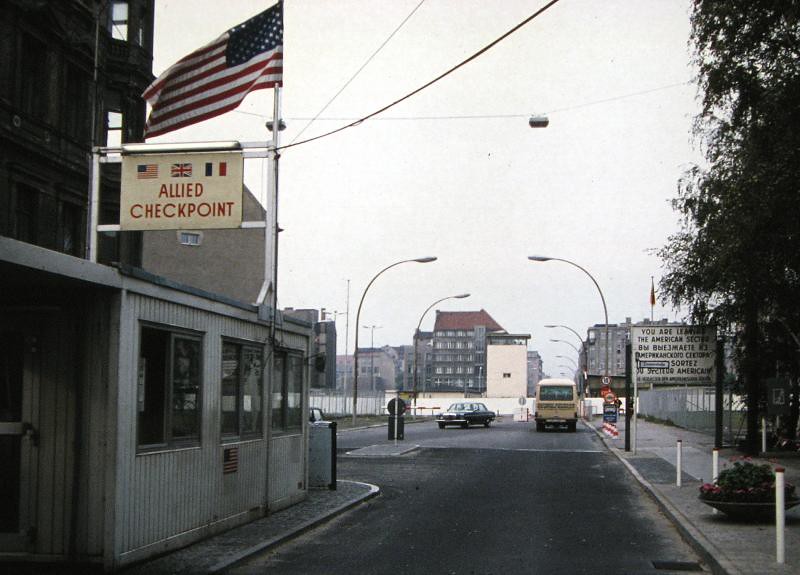
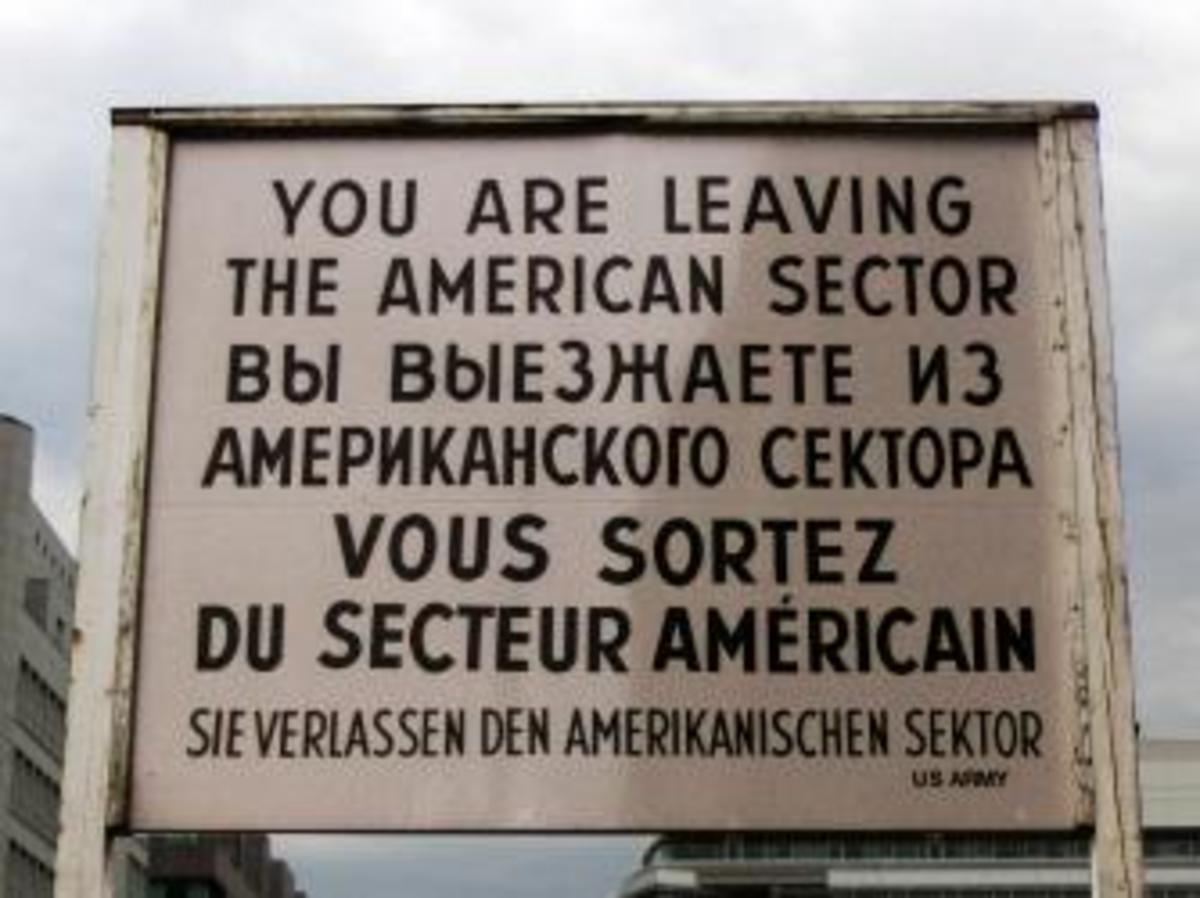
|
Flash-forward three years to October 1989. I served President George H.W. Bush at the Department of Treasury as deputy assistant secretary of the treasury for corporate finance. Bush mustered America’s resources to help central and Eastern Europe get back on their feet, shake off the failures of communism, and rejoin the family of nations.
My job was to recruit American experts and place them in finance ministries and central banks to encourage a market-based banking system, stock market formation, accounting metrics, and the adoption of private property rights and the rule of law. It was a thrill to help plant the seeds of capitalism from Poland to Bulgaria.
Below: Congressman Hill (second from the left) attends a meeting with
President George H.W. Bush (center).
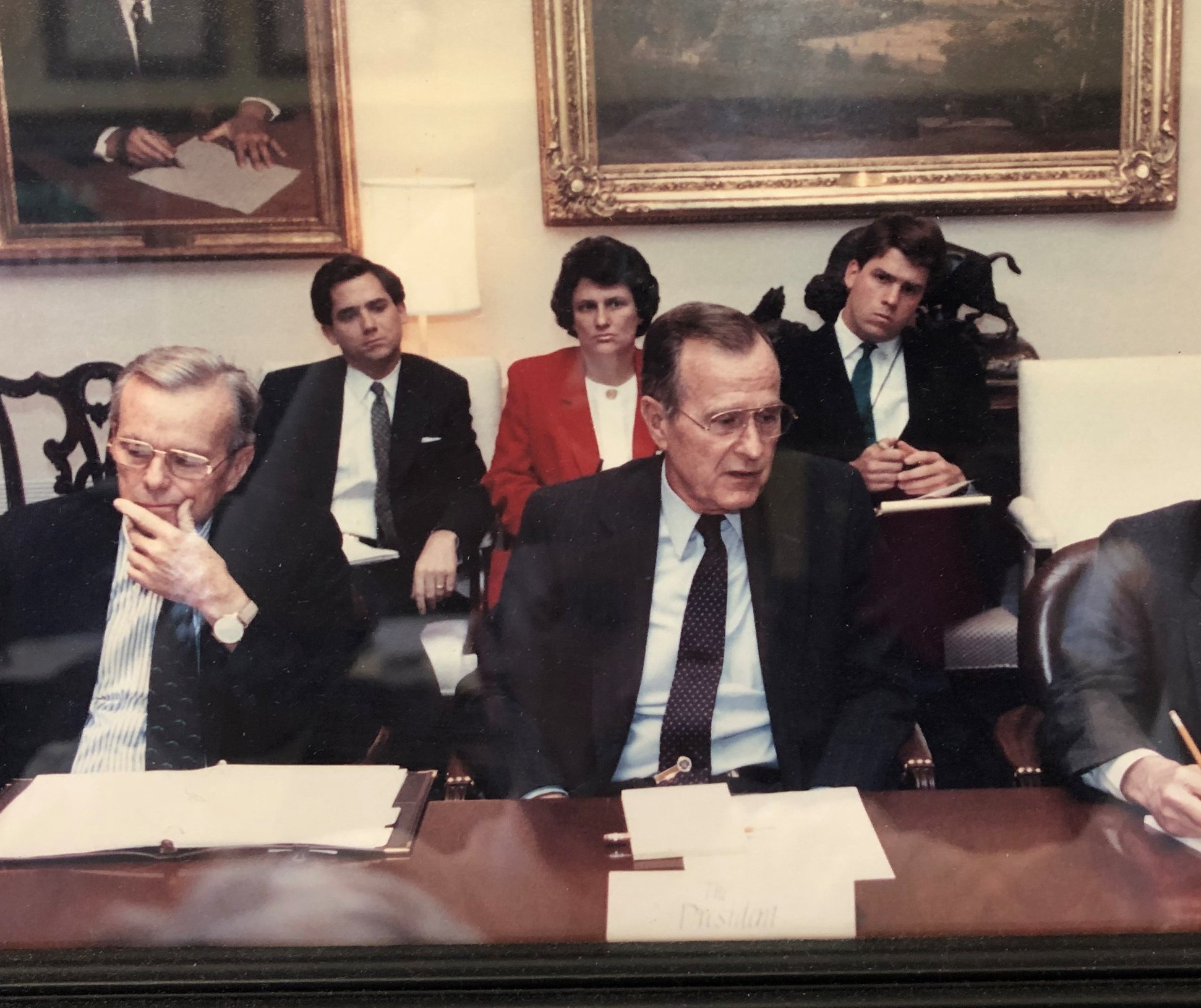 |
Prior to the beginning of World War II, the eastern half of Germany had higher levels of growth than the western half. The per capita national income in West Germany was 103% of that in East Germany before the split in 1945. Fast-forward 46 years and that number would drop to 31% in 1991.
An economist from India, B.R. Shenoy, had a first-hand look at the difference between the east and the west. In a 1960 article, Shenoy documented, “The main thoroughfares of West Berlin are near jammed with prosperous looking automobile traffic, the German make of cars, big and small, being much in evidence. ... The departmental stores in West Berlin are cramming with wearing apparel, other personal effects and a multiplicity of household equipment, temptingly displayed.”
Like my visits to East Berlin in 1986, Shenoy continues, “Food shops in East Berlin exhibit cheap articles in indifferent wrappers or containers and the prices for comparable items, despite the poor quality, are noticeably higher than in West Berlin. ... Visiting East Berlin gives the impression of visiting a prison camp.”
Does there exist a better example of socialism failing than what we witnessed in Berlin?
There was no difference in demographics, geography, or culture between the people of East and West Berlin, only a difference of socialist policies and capitalist policies. After World War II, in the west, the free market was allowed to thrive. Entrepreneurs could improve their own lives by satisfying a need of others. Business owners could freely provide goods and services, and consumers, not a central government, dictated supply and demand. In the east, government elites controlled almost all aspects of life for its citizens.
Over time, the lack of free-market competition, economic stagnation, and a neglect for human rights led to a collapse of their society. As more citizens of East Germany tried to flee, the only way the government could stop them was to wall the people in.
Even though it has only been 30 years since the fall of the Berlin Wall, it seems that we as a nation have forgotten the destructive nature of socialism. In a recent YouGov poll, 70% of millennials say that they are somewhat or extremely likely to vote for a socialist candidate. In my view, if millennials were around before the fall of the Berlin Wall, many would better understand that socialism wrecks free and open markets, builds walls across cities, fundamentally limits individual freedoms, and lowers the quality of life for everyone.
It may seem like a stretch to compare policies implemented behind the Iron Curtain to policies proposed today in the U.S., but the comparisons do exist. It started in East Germany with the government nationalizing major industries, such as the energy industries. This led to inflated prices, a lack of motivation, and poor service. Similarly, anyone who has watched one of the 2020 Democratic primary debates will recognize that far-left politicians are trying to launch a full-scale government takeover of our $350-billion-per-year energy industry.
Others point to the healthcare debate. Obamacare dramatically increased the role of government in the healthcare system. Yet today, 2020 Democratic candidates for president admit they believe Obamacare was not enough government control to fix the serious challenges ailing our healthcare system. Instead, they believe the solution is actually increasing the government’s role in healthcare and unanimously support some form of "Medicare for all." Believing that the government is better suited to control the lives of its citizens than the free market is exactly what leaders of East Germany believed.
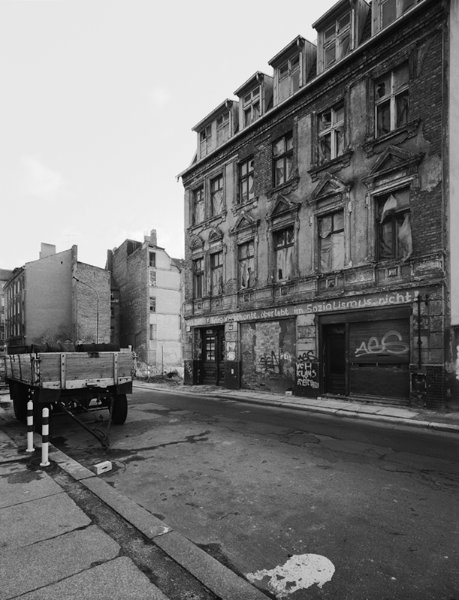
Above: The graffiti on the front of this building in former East Germany says:
"What was spared by war doesn't survive under socialism!" |
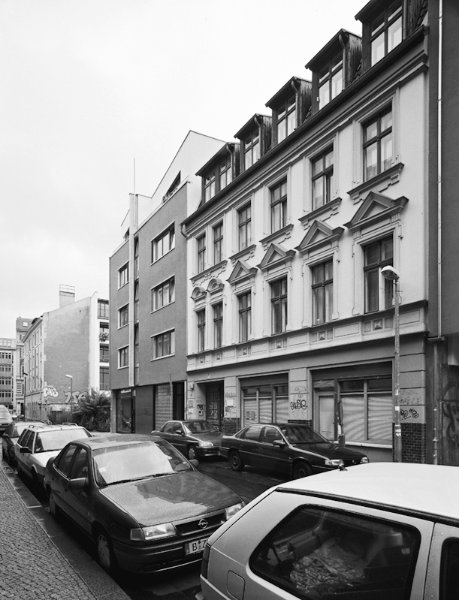
Above: Ten years later, the building has been repaired, and the neighborhood revitalized. |
My experience working with the Treasury Department to help spawn the rebirth of capitalism across central Europe gave me a heightened appreciation for free markets. The fall of the Berlin Wall, along with the adoption of capitalism, not only helped pave the way for Germany to once again attain its status as an economic powerhouse, but it also led to more prosperity and happiness for its citizens.
As we commemorate the 30th anniversary of the fall of the Berlin Wall, Americans should learn from history and not repeat East Germany’s mistakes.
Sincerely,

Representative French Hill
|

